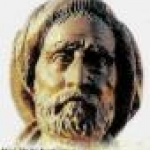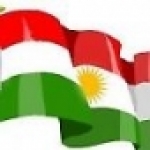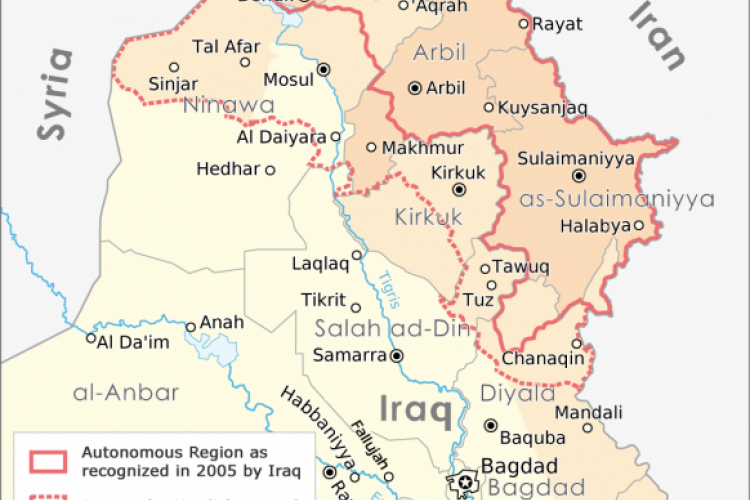By Dr. Azad Aslan
The Kurdish Globe
Southern Kurdistan intellectuals take aim at the KRG after the firing of a university rector.
"The KRG, Kurdistan Parliament, Kurdistan Presidency, and Kurdistan Peshmerga forces, whether we like it or not, are the only legally established political institutions and internationally recognized entities. In that sense they at least morally represent the Kurds in the four parts of Kurdistan and are sources of hope among the Kurdish nation."
In an article, a university lecturer, Rebuar Swaili calls the Kurdistan Regional Government (KRG) a fascist government. "Only fascism can tolerate the aggression on intellectuals, expelling them and burning their books and libraries," he wrote. Such a strong and absurd accusation was a result of the KRG's decision to remove the former rector of the University of Kurdistan-Hewler, Dr. Abbas Vali, from his post.
The style of language and the logic behind the article is an ample demonstration of the poverty and hatred-ridden mentality of some Kurdish intellectuals in southern Kurdistan. By any standards, there exists no Kurdish intellectual class. Rather, self-proclaimed Kurdish scholars more closely resemble a patchwork assembly of "certificated illiterates," to use Turkish academic Fikret Baskaya's apt expression. In Kurdistan and in Diaspora, the poverty of the Kurdish intelligentsia and their political immaturity, shortsightedness, and shallowness is striking. An analysis of nationalist trends globally and historically indicates the pivotal role played by the intelligentsia in fostering a sense of national identity and in the development of a nationalist movement. The persistent deficiencies of the Kurdish intelligentsia are a fundamental factor in explaining the chronic crisis and confusion of Kurdish nationalism since its inception in the first half of the 20th century.
Swaili's article demonstrates the intellectual poverty of Kurdish intelligentsia. Apart from a minority of distinguished scholars, Kurdish academics and literary circles ascribe to simplistic notions of positivism, empiricism, and Eurocentrism.
Swaili's article is exemplary of cheap heroism that is fast becoming a trend in Kurdistan Region among self-proclaimed intellectuals and journalists. Swaili's article is indeed ridiculously cheap heroism. He implicitly infers that he is ready to give his life for his bizarre criticism of the KRG, as if the KRG would punish him because of what he said. This sort of state of mind reflects the poor popularism that is a main characteristic of shallow personalities. Swaili's article is strikingly self-defeating. He compares the KRG to Nazi Germany, and yet he expresses himself in a paper that is published in Kurdistan under the jurisdiction of the KRG. If the KRG is a "fascist" regime, then how come Swaili finds his way to the public? Is this not self-contradictory? Such a self-defeating statement not only reflects the author's immaturity, but at the same time is indicative of the mixture of shallow, judgmental, and Eurocentric perceptions embedded in Kurdish intellectualism.
Calling the KRG a fascist regime indeed is a serious crime not against the KRG, but against the millions of Jewish victims who were subjected to genocide by the Nazis. Of course it is also an insult to the KRG, betraying the fact that it is not a genocidal regime by any standards but a political entity that was established in the first place to protect the people of south Kurdistan from Saddam's sustained genocide. Labeling the KRG fascist is also an insult to the people of south Kurdistan, who, with their active consent, enjoy under the KRG's democratic protection a certain degree of democracy, human rights, and freedom, which are all important universal qualities that allow the world to define south Kurdistan as "the other Iraq." Comparing Hitler's Germany to the KRG perhaps is the most favorable approach that could have been made to Nazism. Fascism is not a cheap concept to use so freely and out of context.
Dr. Vali is not kicked out of Kurdistan or punished by the KRG, but only removed from his administrative post. His removal has nothing to do with his intellectual standpoint. Dr. Vali himself is not a fierce critic of the KRG or the KRG prime minister, Nechirvan Barzani. It is not clear why Swaili is so disturbed by the removal of Abbas Vali. There is no denial that Dr. Vali is one of the most distinguished Kurdish scholars in international standard. After all, he was removed from his administration post, not as a lecturer in the department of politics. The KRG position vis-Ã -vis Dr. Vali has nothing to do with his intellectual capacity or position. He was brought to his post by the KRG and he was removed from his post by the same institution. There is no logical connection with his removal to Nazi attitudes toward German intellectuals or opposition groups.
Being an acclaimed intellectual does not necessarily mean being an efficient administrator. Most of the rectors in internationally recognized universities worldwide are coming from administrative backgrounds rather than politics or related fields.
It was Dr. Vali's mistake to accept the post he was offered by the KRG. By accepting the administrative post, he jeopardized his renowned scholarly position. No matter his failure or what seems like a failure that he demonstrated as rector at the University of Kurdistan-Hewler, it would not affect his intellectual and scholarly capacity particularly in the political field. Unfortunately, bizarre and absurd reactions from people like Swaili indeed would put Dr. Vali in a very difficult position. It is unfortunate for Dr. Vali that he was "supported" and "defended" by such a low-class, self-proclaimed intellectual and critic.
Instead of engaging in constructive criticism in the KRG's internal, regional, and international policies; instead of criticizing the KRG's highly centralized education system and proposing better alternatives, people like Swaili engage in destructive, reactionary, and judgmental accusations, which is the typical Middle Eastern intellectual tendency.
People like Swaili, Kemal Mirawdeli, Kemal Said Kadir, and so many others do not hesitate to jump on any opportunity to falsely and in most cases illogically blame the KRG or Kurdish political actors.
It is a pity to note that at such a sensitive period where the Kurdish nation throughout Kurdistan faces serious challenges, some Kurdish intellectuals in southern Kurdistan and in Diaspora involve themselves in pitiful, narrow, and unproductive rhetoric against Kurdish political entities. As I mentioned elsewhere, "the real danger of such superficial, hate-oriented accusations against Kurdish political parties and leaders is the suppression of legitimate criticism; informed and constructive discourses are submerged beneath such shallow and subjective writings." While Kurdish intellectuals are busy labeling the KRG and Kurdish political actors "fascist," "feudal," and so on, who is to inquire into the chronic problems and shortcomings of the Kurdish national movement and the failure of Kurdish political actors to generate workable political programs to give the nation a better future?
The current Kurdish intellectual arena is populated by people like Swaili, Kemal Said Kadir, and Mirawdeli, whose prime intentions are the diminishing and dehumanization of Kurdish political figures and institutions. Such characters serve only to fragment further the Kurdish national movement and deepen the crisis of Kurdish nationalism.
The KRG, Kurdistan Parliament, Kurdistan Presidency, and Kurdistan Peshmerga forces, whether we like it or not, are the only legally established political institutions and internationally recognized entities. In that sense they at least morally represent the Kurds in the four parts of Kurdistan and are sources of hope among the Kurdish nation. These institutions are valuable assets to the Kurdish nation and must be protected and elevated by the Kurds, particularly by the intelligentsia. This, of course, does not mean they are immune from criticism. Constructive criticism and rich alternatives that are proposed and produced by intelligentsia and critics are essential to the success and achievements of these institutions.
The Kurdish nation is an oppressed nation and Kurdistan is an occupied country. Liberation of nation and independence of country can only be realized by the role of political agency, in effect, political parties and institutions. What we observe among some so-called intellectual circles, particularly in southern Kurdistan, is their hatred toward these institutions. This destructive hatred would only serve those forces that do their best to keep the existing status-quo in the region.
Kurdistan is at a crossroad. At this sensitive period, not only Kurdish political organizations but all Kurdish civil institutions, Kurdish intellectuals, and individuals have a responsibility in the successes and failures of the Kurdish national liberation movement. It is not enough to blame or criticize Kurdish political parties or leaders. Should existing Kurdish political entities and leaders fail to lead the Kurdish nation to independence, freedom, and prosperity, then it is the main duty of the Kurdish intelligentsia to generate concrete political programs, strategies, and alternatives. They must do it not only in discursive space but also in practice, in the daily struggle of the nation.
Kurdistan University of Hewler, indeed, is a prestigious educational institution and remarkable experiment that represents a break from the highly centralized education system that currently operates in Kurdistan Region. It has the potential to set a model for the reformation of all education practices in Kurdistan. It is unfortunate to observe such a model being riddled with administrative problems and chaos. Swaili's absurd reactions would further diminish this positive and radical undertaking. It is hoped that the new administration would put order to and end the chaos of this unique experiment. The success of Kurdistan University is in the interest of the Kurdish nation. Nobody has the right to jeopardize this experiment.







